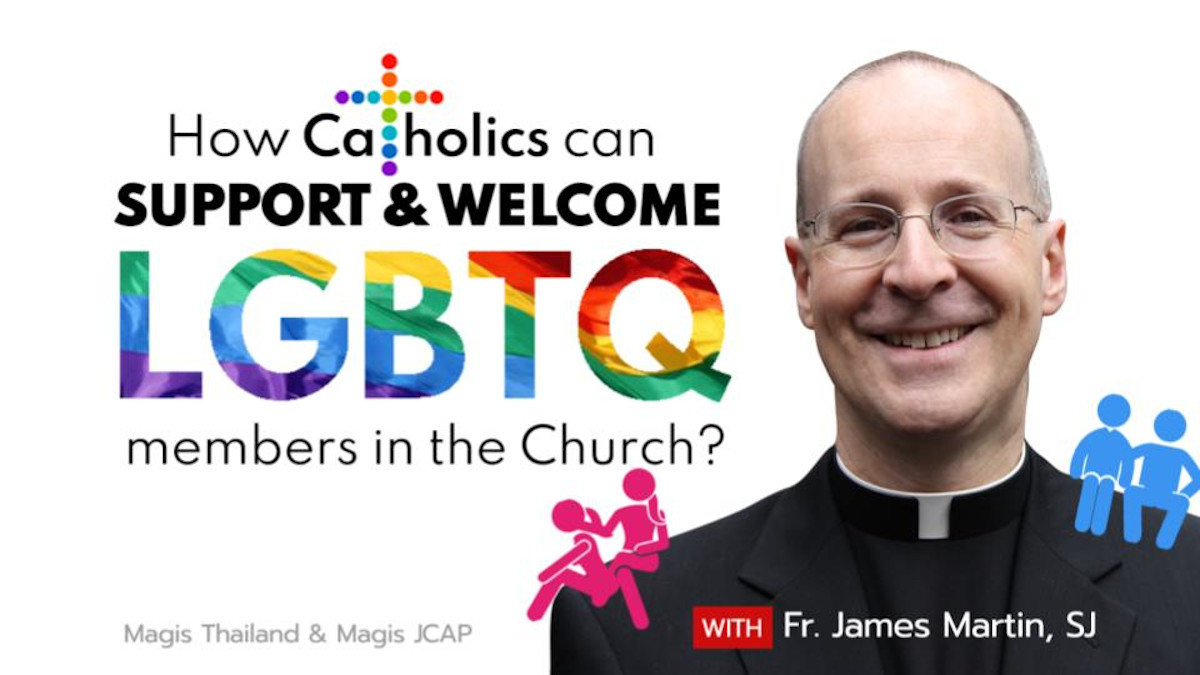 Undoubtedly, Thailand is a secular society, where religion and spiritual matters rarely have meaning for the young generation. Currently, fewer young people engage in the Catholic Church, relative to the generation of our parents; a similar trend in the Western world can be seen hic et nunc. The pandemic, political and economic storms, virulent remarks from contemporary society about our Church, and several friends deciding to disconnect from the Catholic community (or even leave the Church) all bring restlessness in our hearts and minds. We can’t help pondering: “How can we help our beloved Church to be transparent and faithful to Her mission in order to remain a credible witness to the Kingdom of God in the 21st century?”
Undoubtedly, Thailand is a secular society, where religion and spiritual matters rarely have meaning for the young generation. Currently, fewer young people engage in the Catholic Church, relative to the generation of our parents; a similar trend in the Western world can be seen hic et nunc. The pandemic, political and economic storms, virulent remarks from contemporary society about our Church, and several friends deciding to disconnect from the Catholic community (or even leave the Church) all bring restlessness in our hearts and minds. We can’t help pondering: “How can we help our beloved Church to be transparent and faithful to Her mission in order to remain a credible witness to the Kingdom of God in the 21st century?”
Admittedly, it is difficult to find a complete list of what we should do. However, St Ignatius’ sentire cum ecclesia (to think and to feel with the Church) provides an excellent guide in helping those who are lost, confused, and lonely. Feeling pain and joy with others is a way to be in, among, and with the Church – the essential step to pass through all difficulties. Still, we need to put some effort: go outside the comfort of our lives to listen, be among, dialogue, and collaborate with the people of God regardless of their age, vocation, or sexual orientation.
Over the past few years, LGBTQ has become a topic of interest in society. Yet, there is little space for discussion in the local Catholic Church at least in Thailand. Being moved by the fact that some LGBTQ Catholics, not only in Thailand, are unhappy and afraid to be their true selves at home and in our Church, we felt a call to recognise their pain and learn how we could help them live fully because, as St Irenaeus said, “The glory of God is a human being fully alive.”
We were quite surprised that Fr James Martin SJ responded to our core question of how to welcome the LGBTQ Catholics by beginning with three simple stories from the Gospel (i.e., Roman centurion, Samaritan woman at the well, and Zaccheus) before he implicitly invited us to ask ourselves: “What would Jesus do?”
These stories astonishingly are prayers. Indeed, as we listened to them, they sounded like guided prayers that we listen to in the Pray as You Go podcast, or La Messe qui Prend son Temps in Paris, except that there was no music, and the three characters who are excluded, rejected, and outcast are the LGBTQ Catholics that we encounter today, anywhere, and at any moment. While giving his talk, Fr Martin was a spiritual director in disguise.
The 45-minute talk was far beyond the LGBTQ-related keynote speech. The event, which at a glance may seem unrelated to spiritual life, was a fruitful moment of contemplation. The climax, in our opinion, was towards the end of Zaccheus’ story, when Fr Martin asked us: “Where do you want to stand? With those who grumble? Or with Jesus?” An open question that was in itself an answer.
Contrary to critics, there was nothing in his talk that goes against the Church’s teaching or doctrine. Love, mercy, compassion, and sensitivity, repeatedly seen at the scene of each three stories, are key ideas that Fr Martin likes to point out.
Now, how do we turn these into action? Well, “making friends”, “being friends in the Lord”, and “being companions of Jesus” should give us some ideas on how we can walk in the footsteps of Christ.
As organisers, we do hope that our event, with the collaboration of Magis Asia Pacific, provided young people with the necessary tools to “help souls”, and to be “people for others” in the 21st century.
Contributed by Tanya Leekamnerdthai, Patrick Pak, and Natthanon Nakro of Magis Thailand
Watch the 26 September discussion of Magis Thailand and Magis Asia Pacific with Fr James Martin SJ

